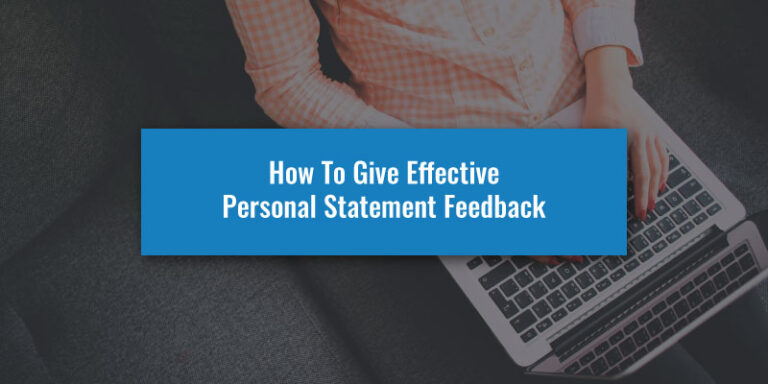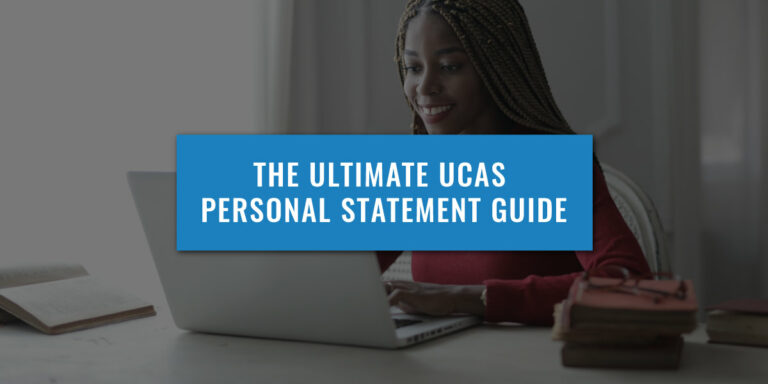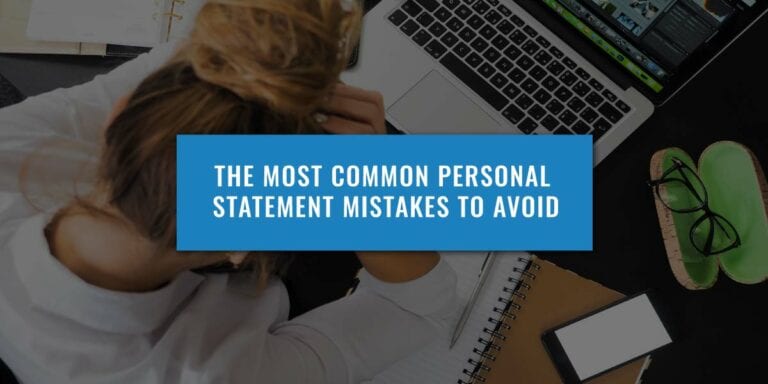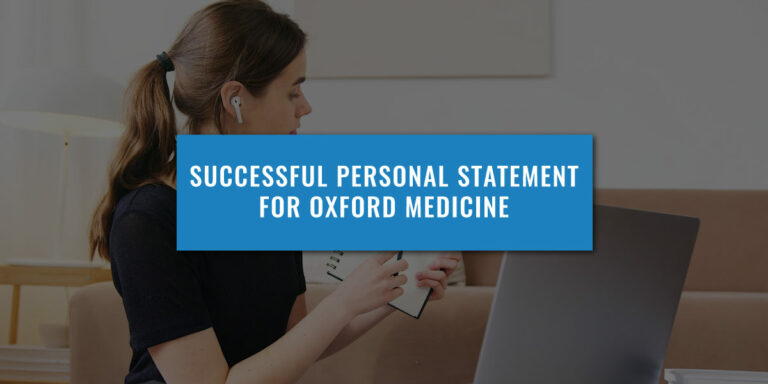The best time to start planning Your Personal Statement is today, so what’s stopping you from getting started?
As cliché as it sounds, the earlier you start, the easier you will make it for yourself. There are four key reasons why you should start sooner rather than later:
- It allows you to identify weak areas. Many students begin writing their statement, then realise they haven't done enough work experience or research. Starting early allows you to fill in these blanks once identified.
- You get more time for revisions. You can improve your personal statement by showing it to as many people as possible to get their feedback. Starting early gives you more time for this.
- You can keep a steady pace. Rather than cramming everything about your statement into a space of two weeks, starting earlier allows you to spend less time on it and more time for the rest of your work.
- Prompt submission. Although the submission deadline is in late-January for most courses, some require a deadline before this (for example medicine, dentistry, and any course at Oxbridge).
Personal Statement Research
You need to establish two things: What course? and What university? Start off by speaking to teachers about the subjects you enjoy. They will have detailed knowledge of course requirements, but they will also know you personally. They can talk about the course in the context of your personality.
The next step is talking with your parents, then moving onto university open days. Your choice of university is completely personal – it will need to be somewhere you can see yourself spending the next 3-6 years of your life.
Talk to current students of that university, they will give you the most unbiased information. On the open day, tour the university – and speak to tutors and other peers who are considering applying to the university. Once you have shortlisted several universities and courses, your personal statement preparation can begin.
Enrolling on our Oxbridge Full-Blue Programmes will give you access to Personal Statement redrafts.
Your tutor will give you actionable feedback with insider tips on how to improve and make your Personal Statement Oxbridge quality for the best chances of success.
Gather Topics To Include In Your Personal Statement
Before you start writing, it’s important to have things to write about. Spend a bit of your time brainstorming what you think would be valuable for each of the three questions in the UCAS Personal Statement. As a reminder, your Personal Statement will be based on these questions:
- Why do you want to study this course or subject?
- How have your qualifications and studies helped you to prepare for this course or subject?
- What else have you done to prepare outside of education, and why are these experiences useful?
You’ll need to choose the things you want to discuss for each of these questions, so let’s break down the things you should consider for each one.
Question 1
- Why did you choose this course?
- What has inspired you to pursue this path?
- Do you have any role models that have helped you get to where you are today?
- Do you have any specific areas of interest within the subject?
- What are your long-term career ideas/aspirations?
Question 2
- How do you like to work at school?
- What is your favourite A-level subject and why?
- Do you have any additional roles at your school (e.g. Team Captain, Head of House)?
- Have you held a position of responsibility? What did you learn from it?
- Have you won any prizes or awards?
Question 3
- Do you have any relevant work experience? What did you learn from it?
- Have you volunteered anywhere?
- What hobbies do you engage with in your free time?
- Have you completed any research projects or wider reading?
- What other factors of your life may be relevant to your applications? Do you have any extenuating circumstances?
The most competitive applicants will have an answer for almost all of these questions, but remember that you have very limited space to write in your Personal Statement (just 4,000 characters in total).
That’s one of the biggest reasons to plan your Personal Statement before writing it: to ensure you know exactly what to discuss. Once you’ve listed everything that could potentially be discussed, it’s your job to cut these topics down to just the most impressive and relevant ones. Ideally, you should aim to discuss two or three topics per question, as this will give you enough space to give details for each one.
Answer all of these questions, and you will get a good baseline to start writing your Personal Statement.
Access "The Big Book Of Oxbridge Applications" For FREE
Planning your Oxbridge Personal Statement? Get The Big Book Of Oxbridge Applications for free today to learn everything you need to know about the Oxford and Cambridge application processes. Through over 350 pages, you will also find:
- 28 example Oxbridge Personal Statements
- Over 40 admissions test practice questions
- Interviews with Oxbridge students and graduates
- Additional downloadable resources
Fill out the form below to claim your digital copy today!
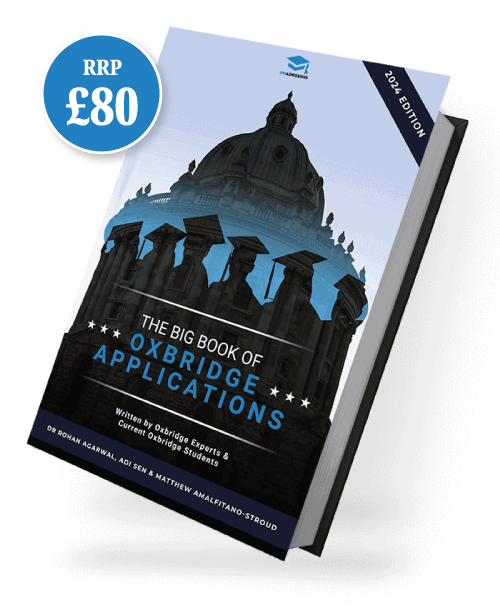
How Will Universities Use My Personal Statement?
This question can change how you write your Personal Statement. For courses that don’t interview, your statement is the only way to truly introduce yourself to the admissions team. This means that there’s more pressure to include only the highlights to ensure you stand out.
There’s also the fact that some universities are more competitive than others. Although the same Personal Statement is sent out to all five of your university choices on your UCAS application, you should write at the standard expected of your top choice. If you’re applying to a competitive university, like Oxford, Cambridge or other Russell Group universities, then your Personal Statement is going to need to stand out.
However, if your course uses the statement as a way to shortlist applicants for interview, then there are additional things to consider. If you’re invited to an interview, you’ll have more opportunities to talk about the things that may have been cut from your Personal Statement. In that sense, writing your Personal Statement is slightly less stressful.
On the other hand, you’ll also need to be prepared to discuss the things you write in the interview, as the interviewer may ask questions about the content of your statement. Therefore, you’ll need to ensure you only include topics that you’re comfortable discussing with an interviewer. You may also want to keep some information out of your statement in order to have more discussion points in the interview, although your statement should still offer enough details on its own.
One of the best ways to fine-tune your Personal Statement plan is to look at examples of success statements and note down what works about them (bear in mind that most examples you’ll find will be written in the old Personal Statement format). To start this process, take a look through our other successful Personal Statement analysis articles:
Conclusion
Creating a plan for your Personal Statement is the best way to ensure you answer each question effectively. By having a clear structure and knowing exactly what you want to include in each part, you will find yourself spending less time questioning your decisions.
We hope this article gave you a good overview of the things you need to consider before you start writing your Personal Statement. Check out our other personal statement articles and successful examples on our Free Personal Statement Resources page.
Looking for Personal Statement support to strengthen your application?
Students enrolled on our comprehensive application support Programmes will get access to Personal Statement redrafts.
Your tutor will give you actionable feedback with insider tips on how to improve your statement for the best chances of success. With UniAdmissions, you can triple your chances of success. Want to find out how?


